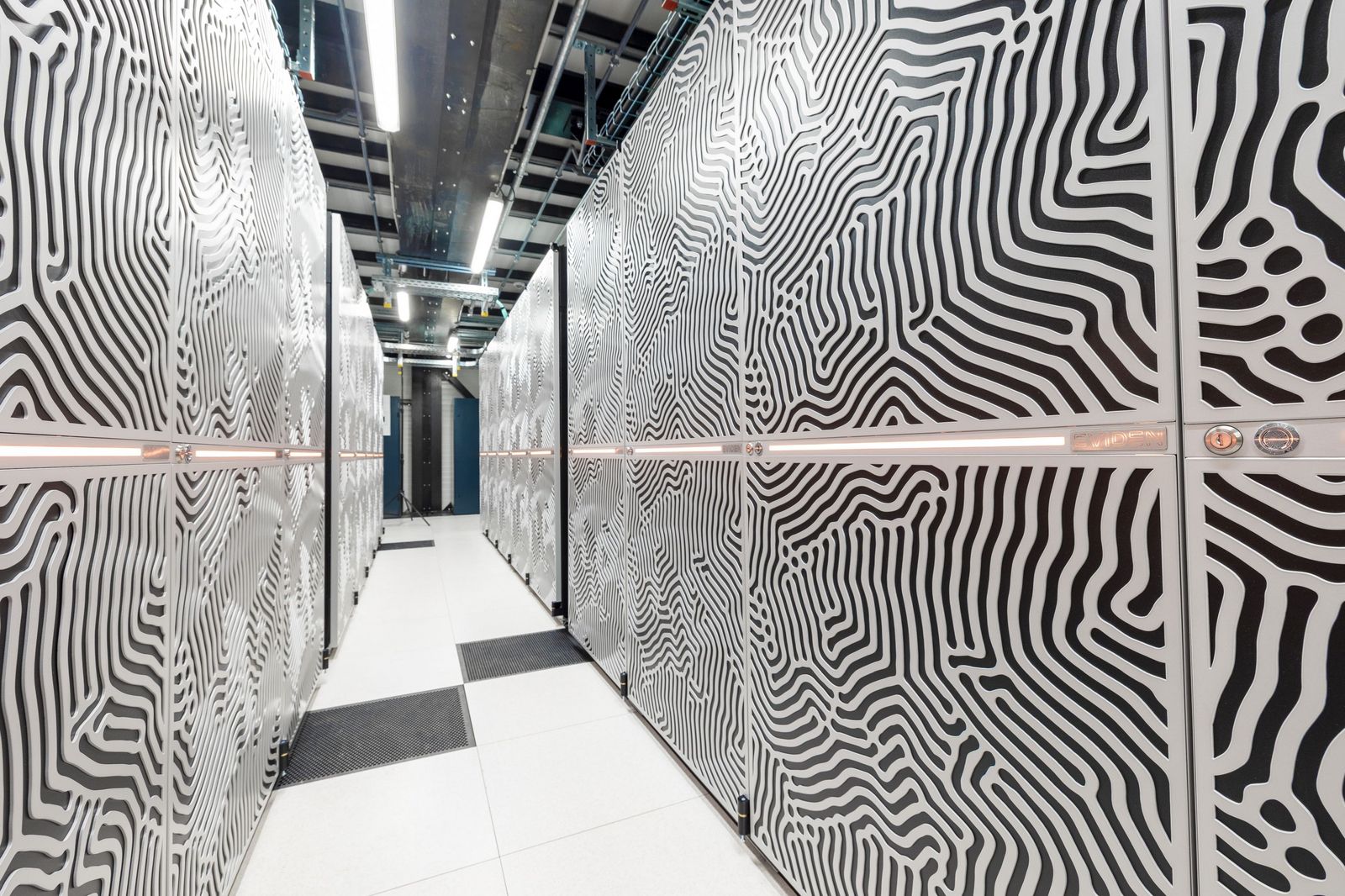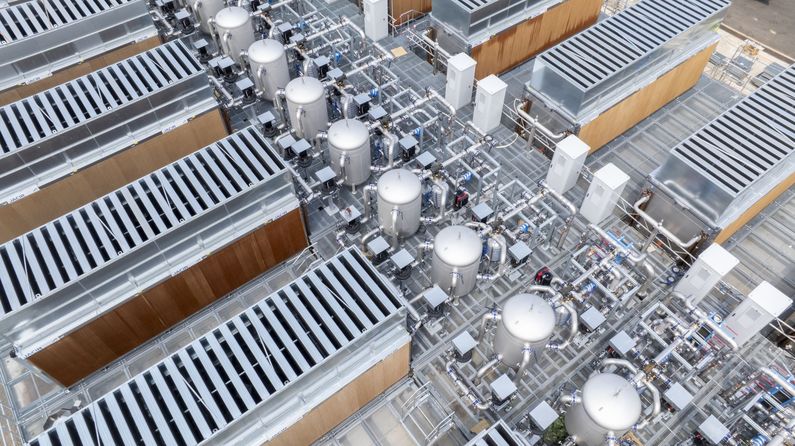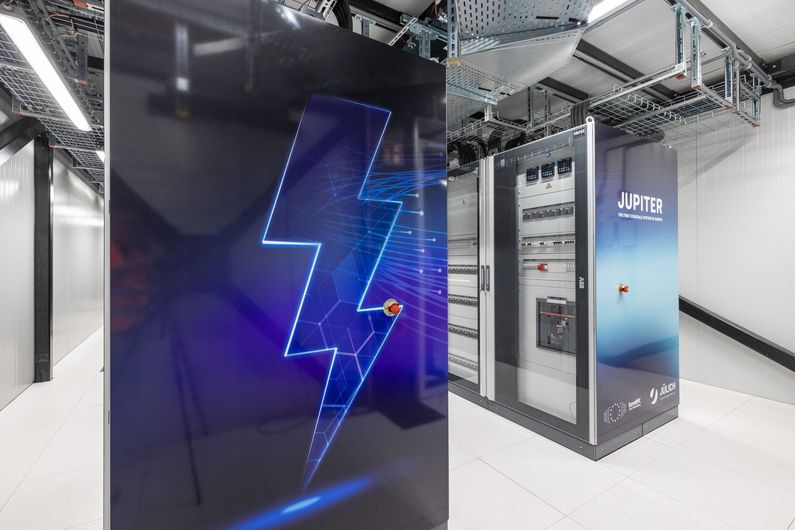NEWS
JSC Officially Welcomes JUPITER, Europe’s Most Powerful Supercomputer
Newsflash 10/2025 –

Copyright: Forschungszentrum Jülich, Sascha Kreklau
On Tuesday, June 10, the Jülich Supercomputing Centre’s (JSC’s) JUPITER supercomputer was officially named Europe’s fastest supercomputer. JUPITER, which is an acronym for “Joint Undertaking Pioneer for Innovative and Transformative Exascale Research,” is the latest flagship high-performance computing (HPC) system installed at one of the three centers that comprise the Gauss Centre for Supercomputing (GCS). When JSC staff and technology providers complete full installation late summer, JUPITER will become the first European supercomputer to achieve at least 1 exaFLOP/s of performance, or capable of at least one quintillion—a one followed by 18 zeroes—calculations per second.
By investing in JUPITER, GCS leadership worked closely with the European, federal, and state partners to ensure that Germany continues to provide academia and industry world-leading technologies to address the most difficult challenges and drive the innovation that underpins Europe’s economic competitiveness.
JUPITER was built by the German-French consortium ParTec-Eviden. The system was half funded by the EuroHPC Joint Undertaking, with the other half split between the German Federal Ministry of Research, Technology and Space (BMFTR) and the Ministry of Culture and Science of the German state of North Rhine-Westphalia (MKW NRW) through GCS.

Copyright: Forschungszentrum Jülich, Sascha Krelau

Copyright: Forschungszentrum Jülich, Sascha Krelau
When installation is complete, JUPITER will offer roughly 24,000 NVIDIA GH200 Grace Hopper Superchips, providing users tightly integrated NVIDIA Grace CPUs with accelerated Hopper GPUs on a single chip. The system is well-suited to highly parallelized modeling and simulation research while also offering users interested in large-scale artificial intelligence (AI) training one of the world’s most powerful systems for advancing generative AI research. AI researchers often train large, generative models using single-precision, 8-bit calculations, and JUPITER will offer these researchers more than 40 ExaFLOP/s.
JUPITER’s Booster module and storage system are fully installed, and through the JUPITER Research and Early Access Program (JUREAP), over 100 applications have already been working with JSC staff to gain early access to the system and port their applications to the new hardware. Once fully installed late summer, users selected as part of the GCS Exascale Pioneer call will gain access to the whole system.
In addition, researchers from both academia and industry had the opportunity to gain access to JUPITER through the “Gauss AI Compute Competition,” sponsored by the BMFTR and MKW NRW and carried out by GCS.
For more information on JUPITER, please read the full press release here and https://www.mkw.nrw/presse
For information on how to access the system, please visit the JSC website.
-Eric Gedenk
Funding for JUPITER was provided by the EuroHPC Joint Undertaking, the German Federal Ministry of Research, Technology and Space and the Ministry of Culture and Science of the State of North Rhine-Westphalia through the Gauss Centre for Supercomputing (GCS).